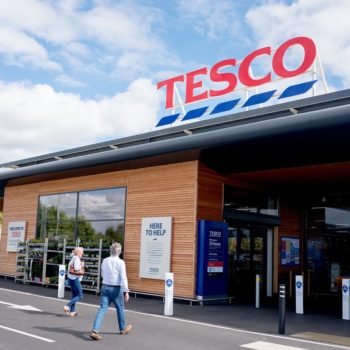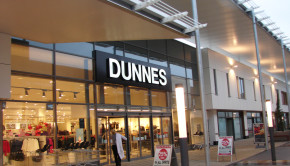Will other retailers follow Tesco in asking suppliers to chip in to their e-commerce fulfilment costs?

Home delivery expert ParcelHero fears Tesco’s ‘request’ that its suppliers contribute towards e-commerce costs will be the thin end of the wedge
14 April 2023
Last month Tesco told the suppliers of its online and Booker wholesale operations to contribute to the cost of fulfilling its online operations. This request could be the thin end of the wedge, warns the home delivery company ParcelHero.
It fears that other retailers will follow suit, imposing their own e-commerce fulfilment charges on their suppliers. And if the supermarkets succeed, retailers such as fashion and department stores could swiftly join the trend.
ParcelHero’s head of consumer research, David Jinks MILT, said: “Tesco’s request that its suppliers’ chip in towards the cost of its online fulfilment seems surprising. Normally, manufacturers and producers supply their products at a trade price to a supermarket chain and the retailer then takes on the task of marketing, selling, and delivering them. The costs involved in retailing would normally be Tesco’s responsibility, not its suppliers.
“Tesco’s email message to its suppliers explained: ‘Tesco shoulders the majority of fulfilment costs – whether it’s serving more than one million online orders a week or getting products to thousands of independent retailers and catering customers.’ Tesco’s shoulders are quite broad, however. The investment bank Morgan Stanley expects Tesco to report a bumper profit of £2.53 billion for the year to mid-April.
“Tesco’s message to its suppliers continued: ‘This fee is essential as we work to fulfil more orders for our customers across the group and we are asking suppliers to engage on this request and to support us.”
“It’s possible this “support” could come at a price for its suppliers, however. According to the BBC, Tesco is asking suppliers to contribute a minimum of 12p per “item” on branded goods. That’s not much on a £45 bottle of tequila, but a massive chunk of the profit on a £1 can of sweetcorn. Small businesses with a turnover of less than £250,000 are expected to be exempt, but it’s thought that any suppliers making more than this will be asked to contribute. In fact, the BBC alleges, suppliers could be penalised if they do not agree to the new “fulfilment fee”.
“This request effectively takes an axe to established retail practices. Traditionally, suppliers sell their products to stores at a trade price significantly lower than the retail price the stores’ customers pay. That’s because everyone recognises that the costs involved in retailers’ supply chains, sales and delivery can be hefty. Stores then sell the item at around the recommended retail price (RRP), which generally averages around two and a half times as much as the trade price (though margins may be lower for supermarkets than other types of stores).
“If Tesco does manage to pull this off and receive fulfilment contributions from its suppliers, you can be sure some other supermarkets won’t be far behind. Sainsbury’s, for example, faces similar overheads on its online operation, although the likes of M&S and the Co-Op have outsourced much of their fulfilment to Ocado and Amazon respectively,” continued Jinks.
“The real question is, will other kinds of stores also start requesting a contribution towards their online fulfilment costs? Will fashion stores ask clothing manufacturers for a percentage? Will Britain’s remaining department stores ask their suppliers for help? They certainly need it as much as supermarkets. Where might the changes lead? Will small craft stores start asking their cottage industry suppliers for a contribution towards e-delivery costs? The truth is that suppliers would then have to increase their trade price to cover the new fulfilment charge. Paying more for their stock would then force retailers to charge their customers more. The result would be that the consumer, once again, ends up footing the increased bill.
“There are two arguments, however, that might support Tesco’s position that it is a special case. Tesco’s Chairman, John Allan, claimed earlier this month that his supermarket’s profit margins are “slender” – around 4p in the pound. That is certainly less than a department store’s margins. However, think how many thousands of Tesco outlets there are around the country, many using pickers to source items from the shelves for local deliveries. Accordingly, its e-commerce fulfilment costs must be significantly lower than those of other retailers that don’t have a huge nationwide network of stores.
“The other argument is that the demand for a delivery fee isn’t without precedent. Amazon, for example, charges fulfilment costs. However, its Fulfilment by Amazon (FBA) charges are footed by the seller, whether they are a manufacturer, supplier or trader. So these costs will be factored into the price the item is sold at. In effect, everyone selling on Amazon becomes a retailer rather than a supplier. Amazon sellers are very unlikely to sell their products to consumers at a trade price, so the delivery costs have been baked into the overall price.”
To find out about some rather more collaborative ways in which suppliers, retailers and their partner logistics companies are innovating to reduce delivery costs and maximise the potential of technology, see ParcelHero’s study on “Dark Stores” and the High Street of the future at: www.parcelhero.com/research/shop-of-the-future



 Print
Print






Fans 0
Followers